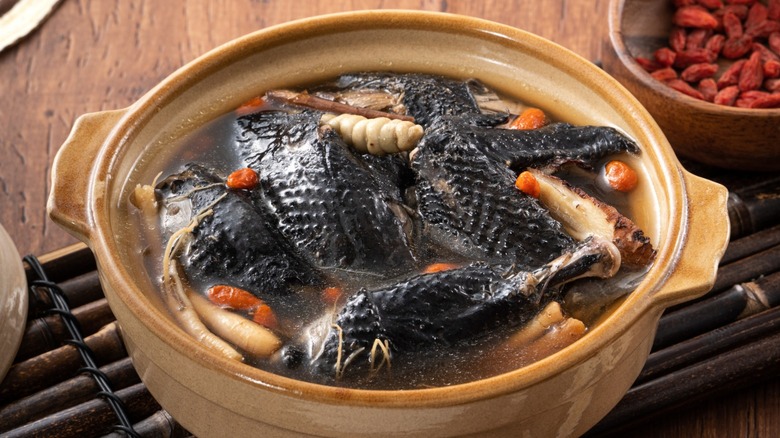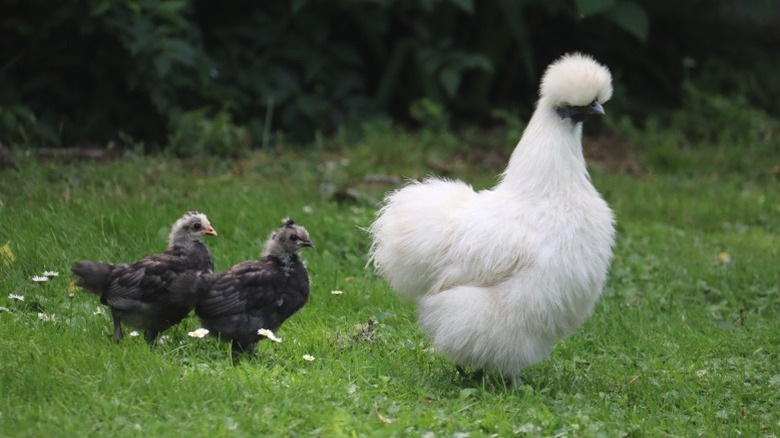What Makes Meat From A Silkie Chicken Different From Other Birds?
You probably know what a raw chicken looks like. We don't want to make any assumptions, but if you close your eyes and picture an uncooked chicken set out in a roasting tray — or maybe laid on the oven rack itself — you're probably imagining something pale, beige, and, well, flesh-colored. So it may come as a shock to you if, when walking through a street market, you come across a chicken that's black. Like, jet black. Ink black. Black as a moonless night. What is it, and what does it taste like? Well, worry not, it's just a silkie chicken, and it tastes like regular chicken — for the most part, anyway.
A silkie chicken is a type of chicken that's found in China, India, and Southeast Asia. In life, it's a ridiculous-looking critter, with fluffy feathers that obscure its eyes and big furry feet. They're exceptionally friendly, even-tempered birds (especially by chicken standards), and you may not even want to eat one at all. But if you do, you'll find that the chicken's taste is anything but as startling as its appearance.
Silkie chickens are free-range birds
The main difference between silkies and regular chickens is, of course, the color of their skin. Despite making them a great ingredient for cooks experimenting with the black food trend, their black coloring doesn't necessarily change their flavor. A chicken is a chicken is a chicken, after all. What might change the flavor profile, however, is the fact that these birds are usually raised in a manner that many people — erroneously — associate with the term "free-range."
Silkie chickens aren't factory farmed like the chickens you might buy at an American grocery store. Instead, they're usually raised on a farm where they can roam around and feed on what they like. As such, they often taste a little bit gamier than other chickens. They're also usually leaner and less greasy than factory-farmed chickens. Some people even say they taste a little bit like duck.
If you don't live in areas where silkie chickens are commonly found, you may not get the chance to try them. If you do, you'll discover them to be a bird as hearty and flavorful as any other chicken you've eaten. Just don't forget to warn your guests before you serve it to them.

